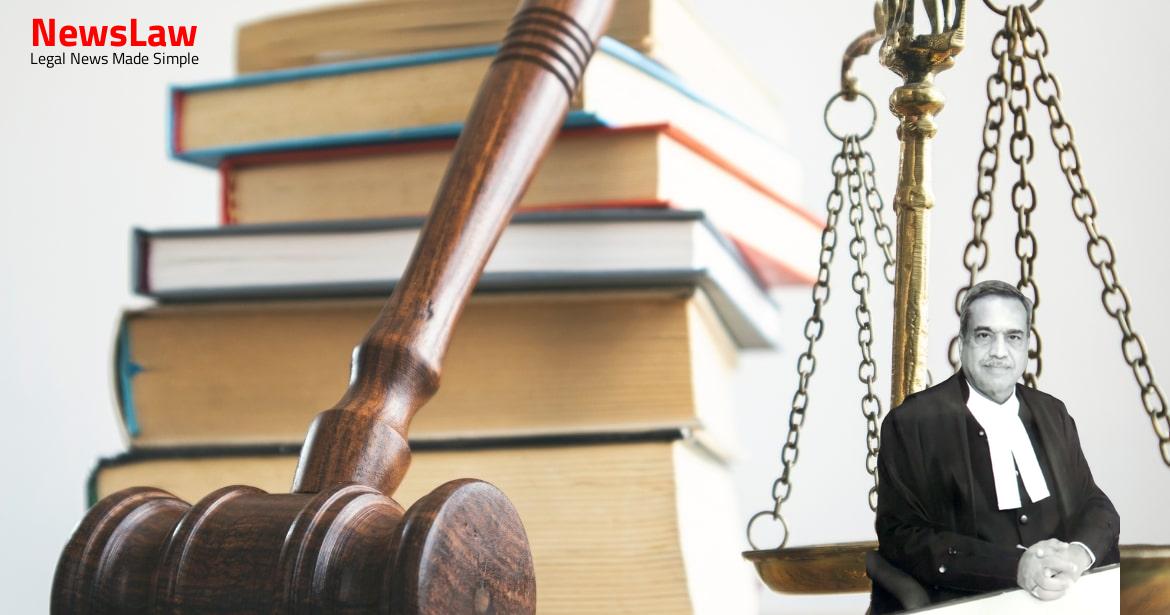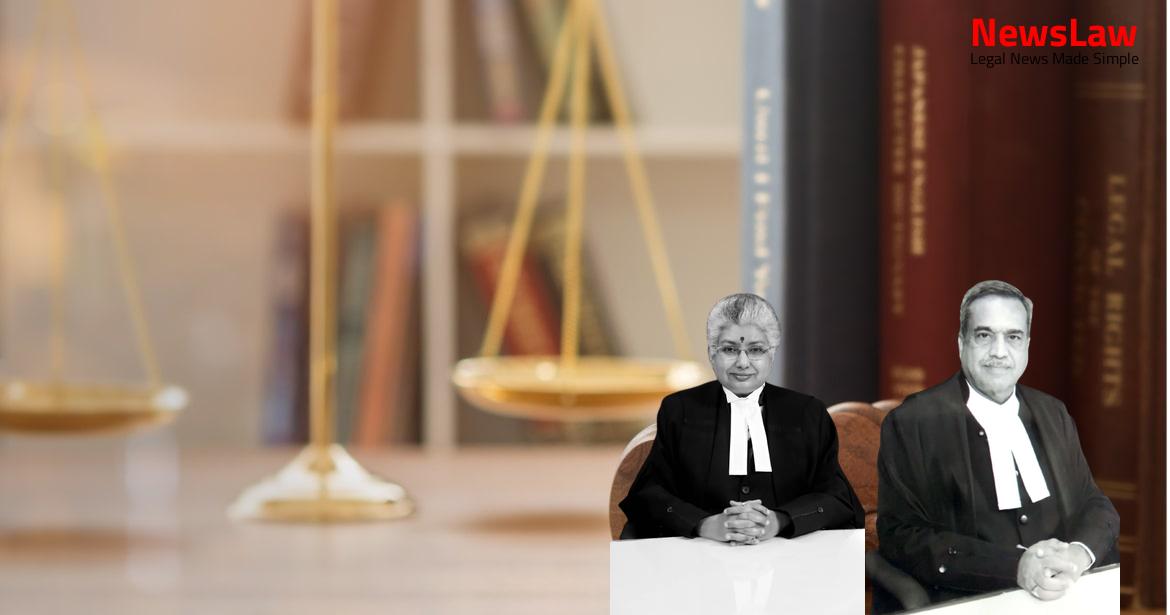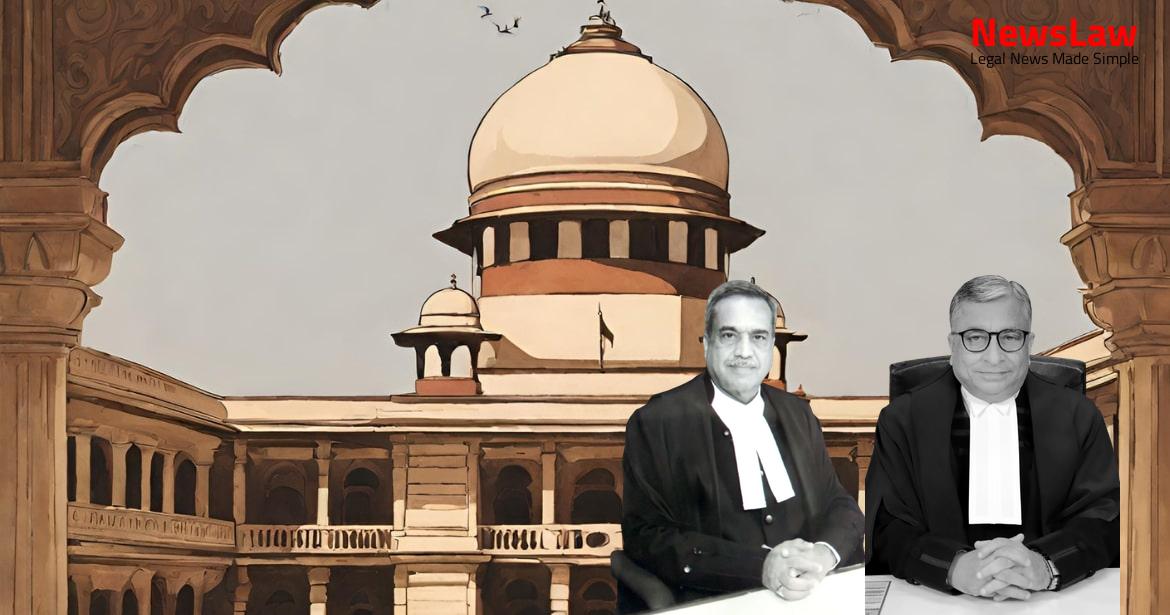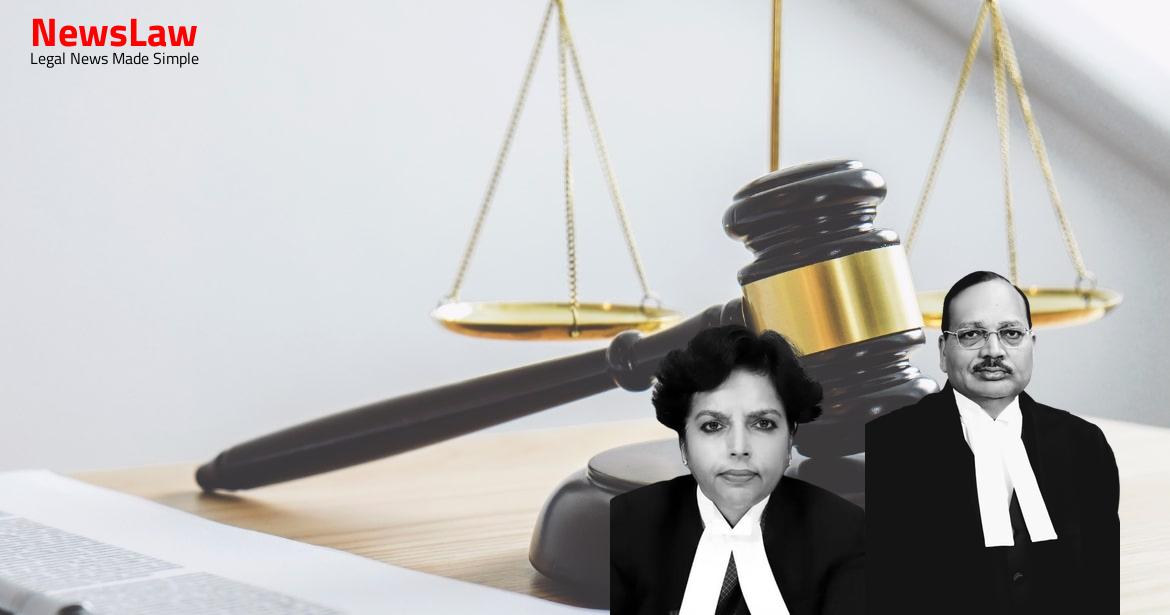Explore the intricate legal analysis carried out by the court in a case emphasizing the significance of judicial independence and fair justice. The case underlines the critical role of the judiciary in upholding the rule of law and preserving the sanctity of the criminal justice process. Discover how the court’s legal scrutiny impacts the administration of justice and ensures accountability within the system.
Facts
- The Superintendent of Police endorsed 17 grievances of subordinates to senior officers as part of duty.
- No evidence of the Superintendent of Police’s intention to connive with accuseds for false charges.
- The SDOP joined her new posting on 31 January 2021 and expressed desire to resign.
- A charge sheet was filed before the court on 13 June 2019 without naming the second respondent.
- An appeal arose from the High Court’s order dated 23 July 2019.
- An enquiry was conducted by ADGP and STF Bhopal as per directions from the Court on 12 March 2021.
- Registrar General of the High Court was informed about SDOP’s complaint and meeting.
- FIR No. 143 of 2019 was registered on 15 March 2019 against several accused including the second respondent.
- The order dated 8 February 2021 was published in newspapers on 20 February 2021.
- The ASJ expressed apprehension of collusion between the accused and the SP, Damoh.
- The DGP was directed to ensure the arrest of the second respondent and investigate allegations against the SP.
- Efforts were made to secure the second respondent, but police were unable to apprehend him.
- The ASJ provided reasons in his order to arraign the second respondent as an accused.
- The second respondent, convicted of an offence under Section 302 IPC, had his sentence suspended during appeal.
- Several warrants were issued for his arrest, but he continued to abscond.
- Despite warrants, security was provided to him based on recommendations due to his political background.
- The security was withdrawn after certain events including an order from the Additional Superintendent of Police.
- An application was filed for his summons under Section 319 of CrPC.
- Investigations and court proceedings regarding his alleged involvement in murder were ongoing.
- The State government sought to revoke the suspension of his sentence and bail, which was declined by the High Court.
- A cancellation of bail was requested due to his criminal antecedents and the investigation was to be completed within a specified time frame.
Also Read: Electoral Malpractices in Mayor Election
Arguments
- Mr Varun Thakur, representing the appellant, outlined the basis for seeking cancellation of bail granted after suspending the sentence.
- The second respondent is accused of a serious offense under Section 302 of the Penal Code after being released on bail.
- It is argued that despite a warrant and proclamation, the second respondent evaded the due course of law following an order under Section 319 of the CrPC.
- These arguments are countered by Mr Saurabh Mishra, representing the State and its authorities.
- Mr Luthra has urged that the allegations against the SP have no substance.
- Mr Shakeel Ahmed, representing the second respondent, has requested that no adverse order be passed against the second respondent.
Also Read: Balancing Power and Transparency: Electoral Bonds Struck Down, Disclosure Mandated
Analysis
- The High Court misapplied legal principles in a case that warranted the cancellation of bail.
- The High Court granted a 90-day period for police enquiry into a complaint of being targeted by the second respondent.
- The Superintendent of Police informed the District and Session Judge about the incident.
- The ASJ and JMFC in Hata were contacted but could not provide statements without permission from the High Court.
- An application was filed before the Registrar General of the Madhya Pradesh High Court.
- Independence of judiciary is crucial for the integrity of the entire system.
- The High Court ordered the suspension of sentence, obstructing a fair investigation into the FIR against the accused.
- The High Court ignored material considerations in disposing of cancellation of bail pleas.
- Judicial independence from political pressures is essential for justice.
- Emergency steps were needed to ensure fair administration of justice due to grave errors by the High Court.
- An enquiry was initiated into the concerns expressed by the ASJ.
- The High Court transgressed into an unusual domain by handling the case inappropriately.
- The High Court’s order impacted the investigation negatively and led to shielding the accused.
- The colonial mindset towards the district judiciary needs to change.
- Individual judges must be able to adjudicate disputes independently.
- An enquiry involving the ASJ’s concerns should be conducted by the High Court.
- An effort has been made to shield the accused from the criminal justice system.
- The High Court failed to preserve the sanctity of the criminal justice process.
- The judiciary must be independent to prevent politicians from operating with impunity and discourage criminality in the political apparatus.
- The Constitution emphasizes the independence of the district judiciary.
- Factors considered in granting bail post-conviction include the nature of accusation, manner of crime, gravity of the offense, and the accused’s behavior during trial.
- Misuse of liberty by committing other offenses can lead to denial of bail during suspension of sentence.
- High Court powers to cancel bail include misconduct like engaging in criminal activities, tampering with evidence or witnesses, fleeing, or becoming unavailable for investigation.
- State must uphold the rule of law to avoid governmental lawlessness.
- Judges should balance commitment to justice with caution against unnecessary criticism of state authorities.
- The judiciary should be separate from the executive branch according to Article 50 of the Constitution.
Also Read: Recall of Resolution Plan Approval: Legal Analysis
Decision
- Order of the High Court dated 23 July 2019 set aside.
- Bail granted to the second respondent cancelled.
- Enquiry to be concluded expeditiously, preferably within one month.
- Communication of the order to the Registrar General of the High Court for compliance.
- Pending applications disposed of.
- Second respondent to be moved to another jail in Madhya Pradesh under the directions of the DGP.
- IA No 6837 and 5781 of 2019 allowed.
- Enquiry to be made on the administrative side by the Chief Justice of the High Court of Madhya Pradesh.
- No views expressed on the report submitted by the ADGP and STF, Bhopal.
- IA dismissed as withdrawn per the order on 1 June 2021.
- Correctness of the High Court order on 23 July 2019 to be examined.
- Complaint by SDOP and order of ASJ dated 8 February 2021 to be placed before the Chief Justice of the Madhya Pradesh High Court within two weeks.
Case Title: SOMESH CHAURASIA Vs. STATE OF M.P. (2021 INSC 349)
Case Number: Crl.A. No.-000590-000591 / 2021



